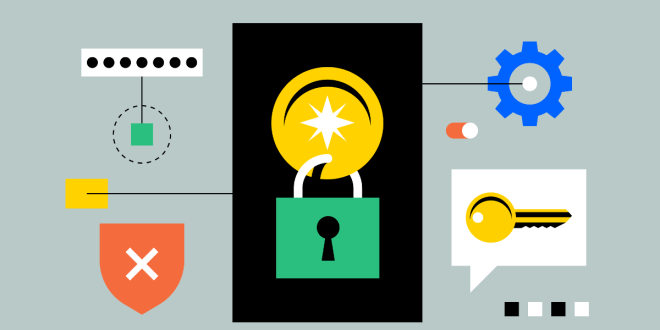In today’s digital age, data privacy has become a paramount concern. With cyber threats and data breaches on the rise, protecting sensitive information is no longer an option but a necessity. Enter blockchain technology, which is revolutionizing the way data is encrypted and secured. In this comprehensive blog, we delve into the world of decentralized data encryption and how blockchain is reshaping privacy as we know it.
Understanding Data Encryption and its Importance
Data encryption is the process of converting information into a code to prevent unauthorized access. It acts as a safeguard, ensuring that even if data is intercepted, it remains unreadable. As cyber-attacks become more sophisticated, robust encryption mechanisms are crucial to safeguarding sensitive data, whether it’s personal information or valuable corporate data.
The Traditional Centralized Approach to Data Encryption
Traditionally, data encryption has been implemented through centralized systems. This means that a single entity, like a company or organization, is responsible for securing data. However, this approach has its shortcomings, as a centralized system is more susceptible to hacking and data breaches. A single point of failure can lead to devastating consequences.
Decentralized Data Encryption Explained
Decentralized data encryption takes a different approach by leveraging blockchain technology. Blockchain, famous for powering cryptocurrencies, offers a distributed and tamper-proof ledger where data is stored in blocks across multiple nodes. Each block contains a unique cryptographic hash that links it to the previous block, creating an immutable chain of information.
The Role of Smart Contracts in Data Privacy
Smart contracts, a key feature of blockchain, are self-executing contracts with predefined conditions. They play a significant role in data privacy by enabling conditional access to encrypted data. Authorized parties can access the data only if they meet the specified conditions, adding an extra layer of security to the data storage and sharing process.
Advantages of Decentralized Data Encryption
Enhanced Security and Immutability
The decentralized nature of blockchain ensures that data is not stored in a single location, making it more resilient against attacks. Additionally, the immutable nature of the blockchain prevents data tampering, further enhancing security.
Transparency and Trust
Blockchain’s transparency allows all authorized parties to view data changes and access records, promoting trust among stakeholders. This level of transparency is particularly valuable in industries where accountability and auditability are essential.
Elimination of Middlemen
With decentralized data encryption, there is no need for intermediaries like data storage providers or third-party auditors. This reduces costs and potential vulnerabilities associated with relying on third-party services.
Real-World Applications of Decentralized Data Encryption
Healthcare Sector
In the healthcare industry, patient data is highly sensitive and requires utmost protection. Decentralized data encryption can facilitate secure and efficient sharing of medical records among authorized healthcare providers, ensuring better patient care and privacy.
Supply Chain Management
Blockchain-based data encryption can revolutionize supply chain management by providing an immutable record of every transaction and event within the supply chain. This enhances transparency, reduces fraud, and improves traceability.
Financial Services
The financial sector can benefit from decentralized data encryption to secure sensitive customer information, facilitate secure cross-border transactions, and prevent fraudulent activities.
Challenges and Limitations of Decentralized Data Encryption
While decentralized data encryption offers numerous advantages, it is not without its challenges. Some of the key challenges include scalability, energy consumption, regulatory compliance, and the potential for new types of cyber-attacks on the blockchain itself.
Looking Ahead: The Future of Data Privacy
As technology continues to advance, so will the evolution of data privacy. Decentralized data encryption powered by blockchain is at the forefront of this transformation. With ongoing research and development, we can expect even more secure, efficient, and privacy-oriented solutions to safeguard our data.
Final Words
In conclusion, decentralized data encryption empowered by blockchain technology is redefining the concept of privacy. It provides enhanced security, transparency, and trust in a world where data breaches are a constant threat. From healthcare to supply chain management and financial services, its real-world applications are limitless. Embracing this paradigm shift in data security will undoubtedly shape a more privacy-conscious future.
Commonly Asked Questions
Q1: How does decentralized data encryption differ from traditional encryption methods?
A: Decentralized data encryption utilizes blockchain technology to distribute and secure data across multiple nodes, providing enhanced security and transparency compared to the centralized approach.
Q2: Is blockchain technology limited to cryptocurrencies?
A: No, blockchain technology has diverse applications beyond cryptocurrencies. It is being used in various industries, including healthcare, supply chain, voting systems, and data encryption.
Q3: Can decentralized data encryption prevent all data breaches?
A: While decentralized data encryption significantly reduces the risk of data breaches, no system can guarantee complete immunity. It is essential to implement multiple security measures to enhance protection.
Q4: How does blockchain ensure data integrity and immutability?
A: Blockchain achieves data integrity and immutability through its consensus mechanism and cryptographic hashing. Once data is recorded on the blockchain, it becomes nearly impossible to alter without consensus.
Q5: Is decentralized data encryption compliant with data protection regulations?
A: Achieving compliance with data protection regulations is possible with decentralized data encryption. However, organizations must still adhere to relevant data privacy laws and regulations.
 webfily
webfily



